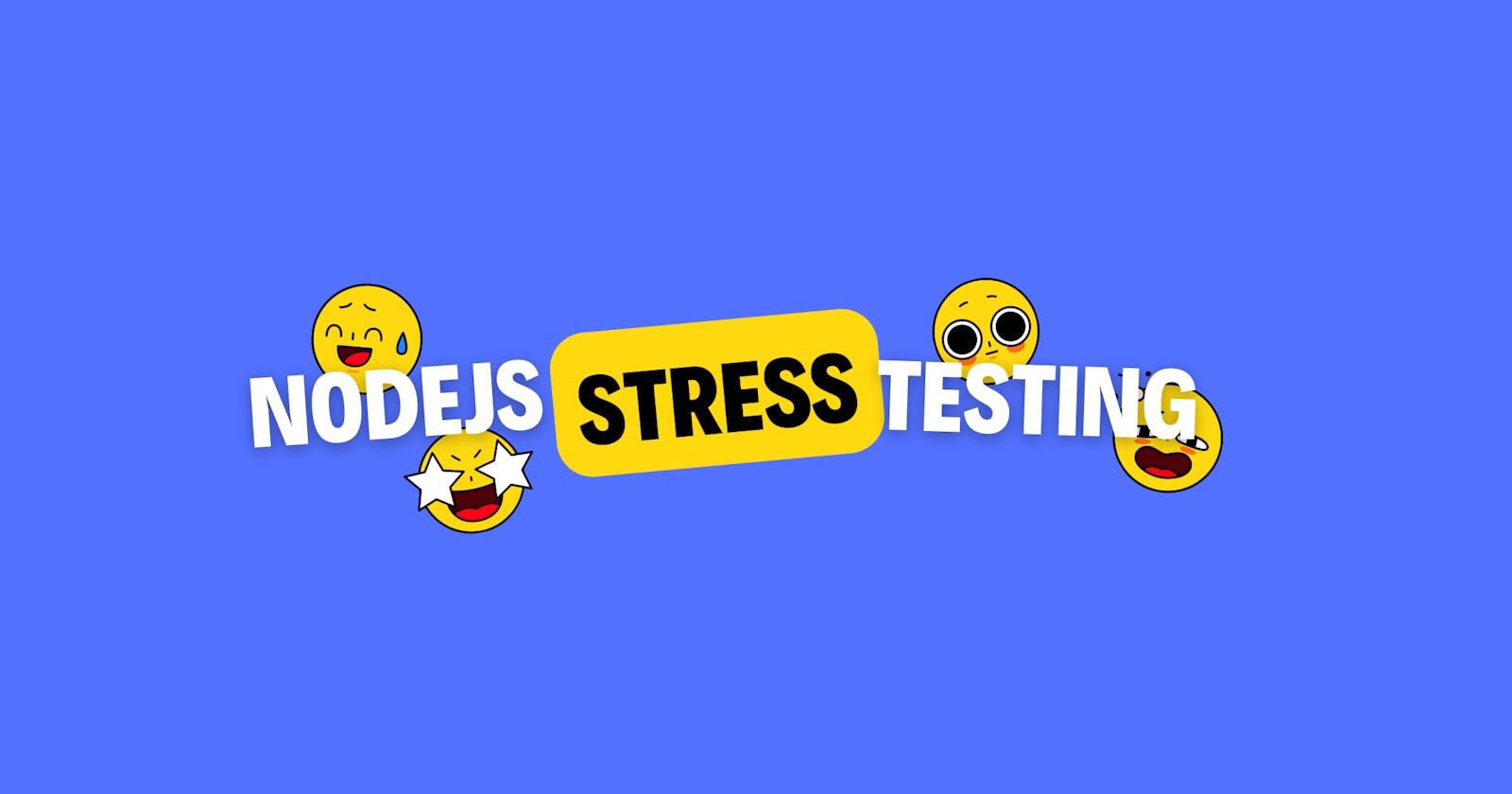Unleashing the Power of Stress Testing for Node.js API's: Enhance Performance and Scalability
Table of contents
No headings in the article.
🌟 Unlocking the Power of Stress Testing for Node.js API's! 🚀
👋 Are you a Node.js enthusiast? Let's dive into the exciting world of stress-testing Node.js API's today! 🎉
As developers, we know the critical importance of ensuring our applications can handle heavy loads and remain resilient under pressure. That's where stress testing comes into play! 💪
Node.js has gained immense popularity for building high-performance, scalable APIs, but without proper stress testing, even the most robust applications can crumble under the weight of real-world usage. 😰
So, what exactly is stress testing, you ask? 🤔 Simply put, it's the process of evaluating an application's performance, stability, and reliability by subjecting it to extreme workloads, and simulating real-world scenarios. By pushing our Node.js APIs to their limits, we can identify bottlenecks, uncover potential issues, and fine-tune our code for optimal performance. 📈
Here are a few critical benefits of stress testing Node.js APIs:
Ensuring Scalability: Stress testing helps us determine how well our API scales as concurrent users and requests increase. By identifying potential performance bottlenecks, we can optimize our codebase and infrastructure for seamless scalability.
Discovering Vulnerabilities: Stress testing uncovers vulnerabilities and weaknesses in our APIs. By simulating heavy traffic and excessive requests, we can detect potential security loopholes and address them proactively, safeguarding our applications and user data.
Enhancing User Experience: By stress testing our Node.js APIs, we can identify performance issues that might hinder a smooth user experience. This allows us to optimize response times, reduce latency, and deliver a lightning-fast experience to our users.
Building Confidence: Stress testing helps us build confidence in our applications. By validating our APIs' performance and resilience, we can assure ourselves and our stakeholders that our Node.js APIs are ready to handle real-world usage, no matter the load.
Now, let's quickly explore a few tools that can assist us in stress-testing Node.js APIs:
🔧 Apache JMeter: A powerful, open-source tool for load testing, capable of simulating thousands of concurrent users and requests. It supports multiple protocols, making it a versatile option for stress-testing Node.js APIs.
🔧 Artillery: A modern, developer-friendly load-testing framework that allows you to define your test scenarios using code. With Artillery, you can easily write custom scripts to simulate realistic usage patterns and evaluate the performance of your Node.js APIs.
🔧 LoadRunner: An enterprise-grade load testing tool that offers a comprehensive set of features for testing complex systems. LoadRunner supports Node.js APIs and enables you to generate high loads and analyze the performance of your applications under different scenarios.
Remember, stress testing is not a one-time activity but an ongoing process. As our applications evolve and our user base grows, we need to regularly evaluate and fine-tune our Node.js APIs to ensure they can handle the increasing demands.
So, let's embrace stress testing, optimize our Node.js APIs, and unlock their true potential! Together, we can build resilient, high-performance applications that delight users and stand the test of time. 💪🚀
If you're as passionate about Node.js and stress testing as I am, let's connect and share our experiences in the comments below! 🌐✨
